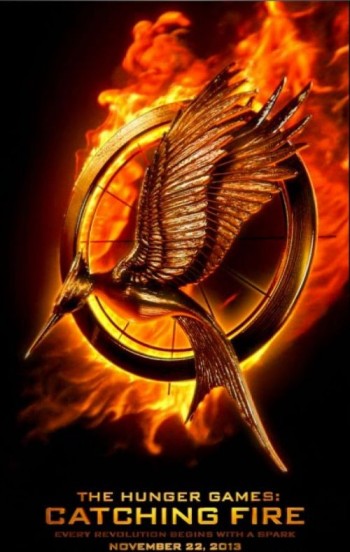
America’s Genocidal Logic At Work From Africa to Asia
December 4, 2013
Putting Planes Before People
December 6, 2013Catching Fire – A Potent Parable For Our Times

“I want Hunger Games to stir up a revolution,” explains Canadian actor and longtime leftie activist Donald Sutherland in a recent interview with “The Guardian.” And he isn’t kidding. Sutherland, who again plays evil Panem president Coriolanus Snow in the second installment of Suzanne Collins’ bestselling Hunger Games trilogy, doesn’t mince words in describing his frustration with his perceived apathy of today’s millennials. “You know the young people of this society have not moved in the last thirty years,” he observes. “They have been consumed with telephones. Tweeting. “ Sutherland’s sweeping stereotypes and Sixties nostalgia aside, he’s right about the Hunger Games – it has the potential to be read as a potent parable for our times. Here’s why.
Collins’ mesmerizing Hunger Games vision, captured clearly by both films, describes a party-free kleptocracy – a dystopia built on America’s ashes where the few enrich themselves at the many’s expense. Panem’s capital city, ruled over by President Snow, maintains tight and exploitative control over 12 outlying districts, through a culture of high-tech surveillance, space ships and shock troops, and the fearful yet riveting annual spectacle of the Hunger Games themselves, in which two young “volunteers” are “reaped” from each district to slaughter each other on live video screens for all to witness.
Some reviewers like Salon’s Andrew O’Hehir have complained about the “ambiguity” and “naivete” of Catching Fire’s political message of resistance, which both Occupy Wall Street’ers and the Tea Party faithful have claimed as their own. But this is precisely what makes Catching Fire such a potent parable. Americans from across the political spectrum are waking up to the realization that only one political party exists in the United States – the corporate class – and that both Democrats and Republicans are in their thrall. Like us, Katniss Everdeen and her district denizens are the 99%.
But wait. There’s more!
While clocking in at 146 minutes, Catching Fire clips right along, revisiting themes from the first film that increasingly resonate in our own world. Collins’ meditations on media’s double edged nature – serving up surveillance on all of Panem’s citizens while dishing out entertaining electronic bread and circus for the masses (“may the odds be ever in your favor”) – speaks to our own horrified ambivalence with the Internet’s perpetual pleasures, measured against the death of privacy with ever-increasing government and corporate intrusions into every aspect of our existence.
Media spectacle as both surveillance and distraction. Computers + Cameras = Control.
“Your job,” Haymitch (Woody Harrelson) explains to Katniss and Peeta, “is to serve as a distraction to get people to stop thinking about their problems.” And the brilliantly smarmy and wonderfully-named Caesar Flickerman (Stanley Tucci channeling his inner game show host) reminds Catching Fire viewers how easy it is to get charmed into buying into a good yarn, no matter how gruesome we know the outcome will be.
Then there is the question of “revolution” and who shall lead it. As a reluctant revolutionary leader, Jennifer Lawrence’s Katniss Everdeen is even more compelling in Catching Fire. While the Christ-like imagery at the film’s end is a bit over the top, Katniss represents a different kind of heroine; a young, smart, physical, brainy, proactive female who doesn’t let men tell her what to do. Hallelujah! She is fierce and handy with a bow, but Katniss is far less interested in killing than she is on two other survival strategies: compassion and collaboration. It is this combination of deeply human qualities that make Katniss so attractive as a potential leader (the Mockingjay) to the districts’ downtrodden, and make her such a threat to the corrupt and callous control of the Snow regime.
Back to Sutherland. Can a movie like Catching Fire really incite a revolution? “Hopefully [millennials] will see this film and the next film and the next film and then maybe organize. Stand up,” says Sutherland. “I have great hope and faith.”
During one fleeting glimpse from Catching Fire, the camera pans past a blur of District 12 graffiti – “the odds are never in our favor” – true’ing Panem’ian propaganda, for just a moment, with a healthy dose of reality for us in the 99%. Perhaps, when watched as a parable for our times, Catching Fire might open us up to new and revolutionary possibilities.
Share this:
- Click to print (Opens in new window)
- Click to email a link to a friend (Opens in new window)
- Click to share on Twitter (Opens in new window)
- Click to share on Facebook (Opens in new window)
- Click to share on Reddit (Opens in new window)
- Click to share on LinkedIn (Opens in new window)
- Click to share on Tumblr (Opens in new window)

